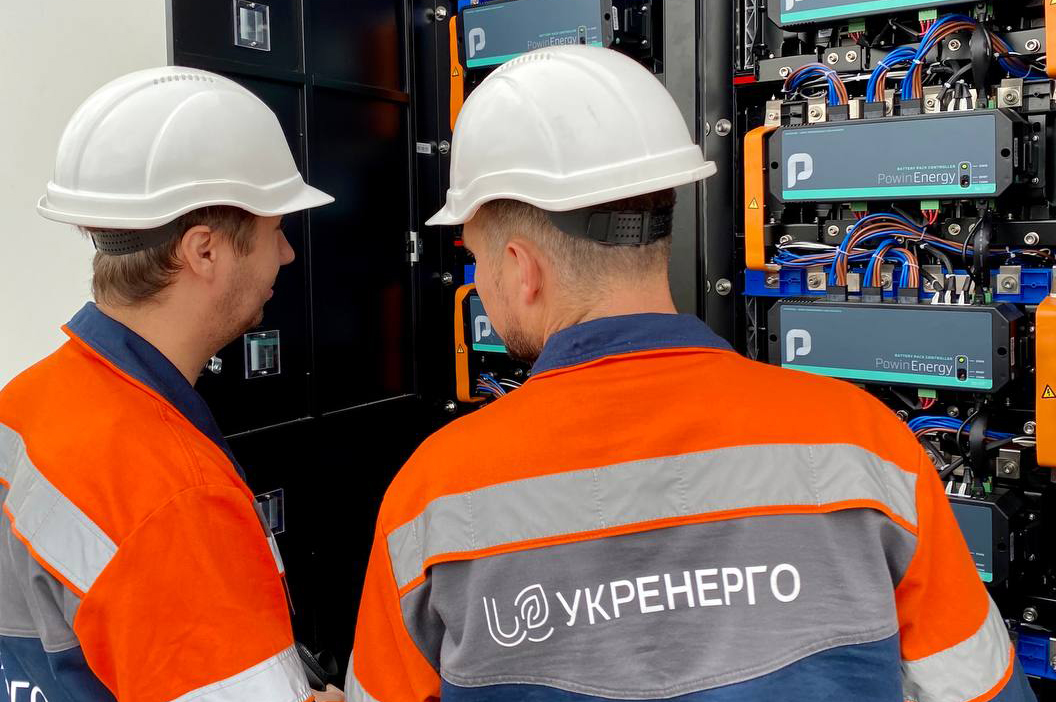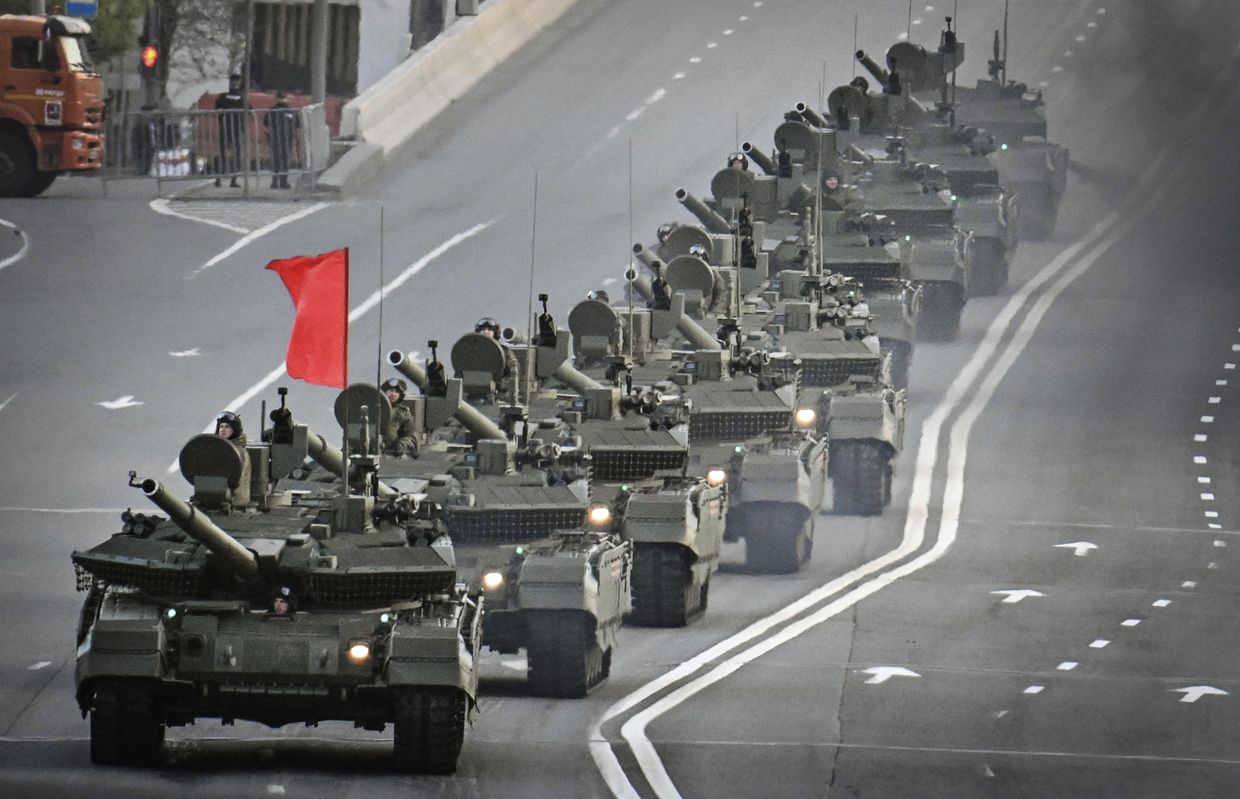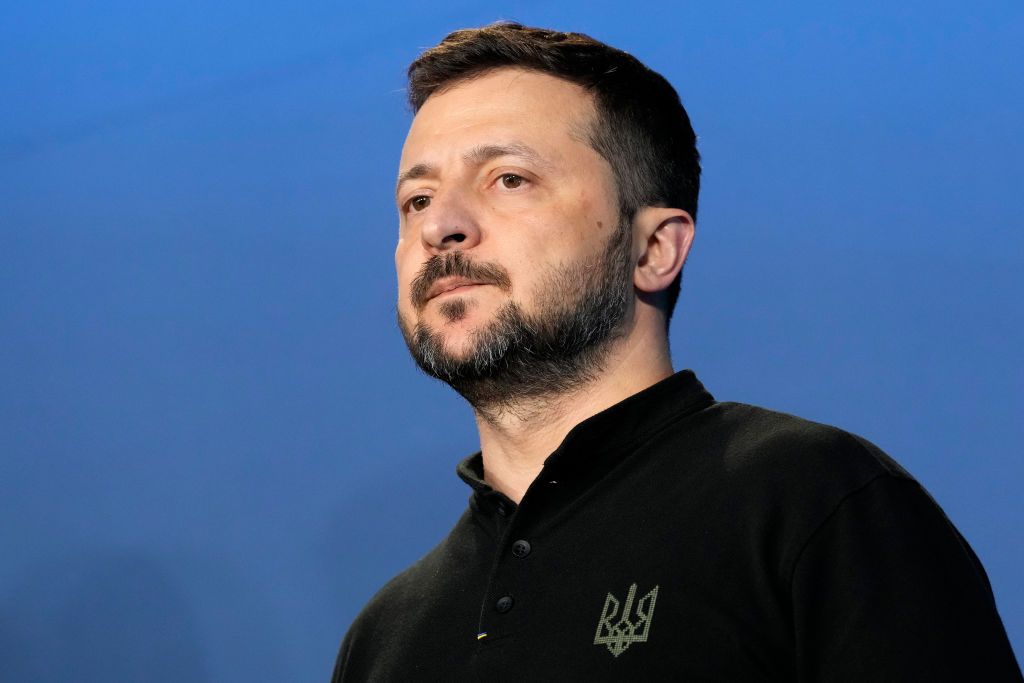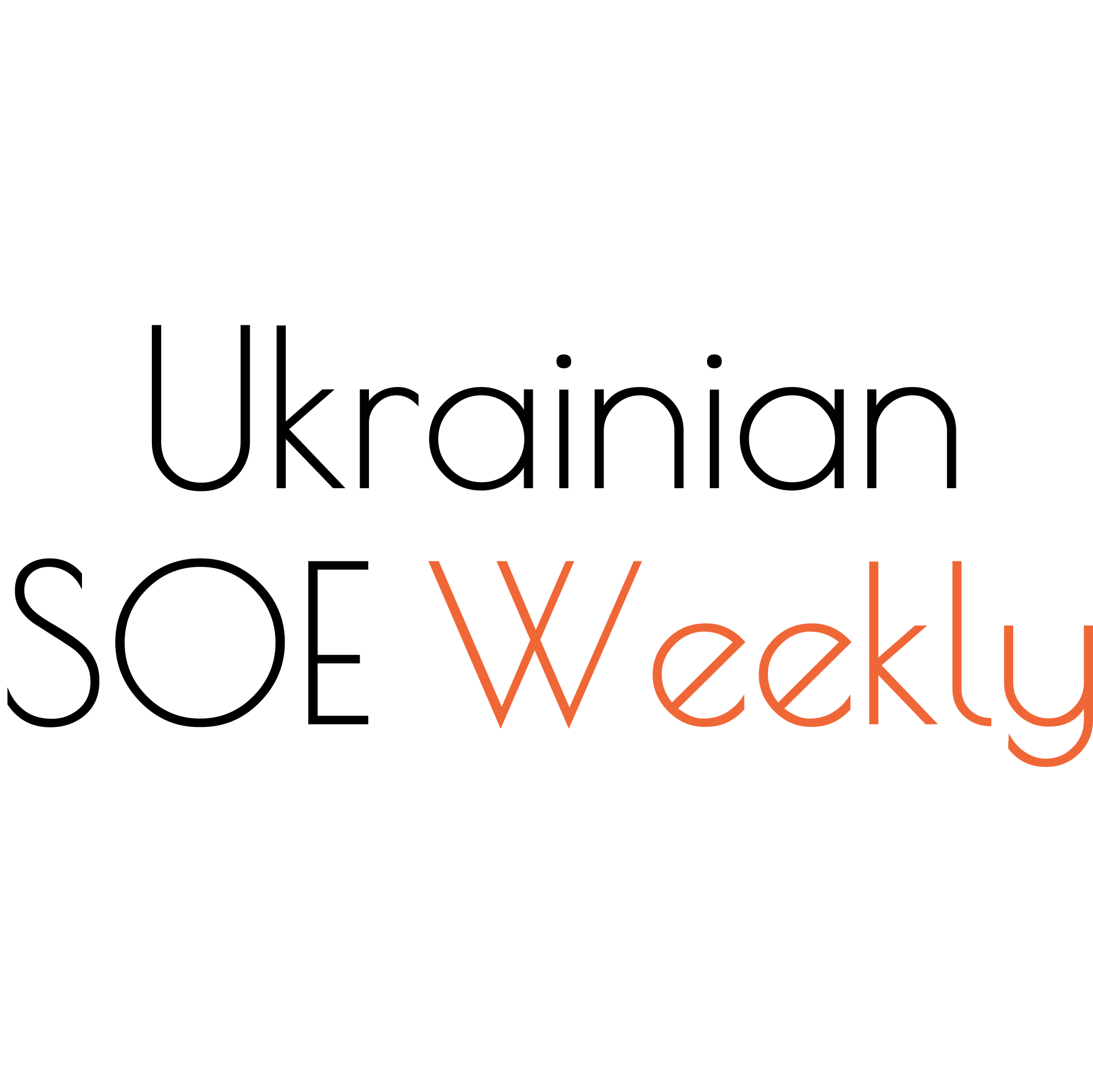Pope said he was praying to God to grant the world the "miracle of peace."
Ushakov’s comments follow Russian President Vladimir Putin's May 11 invitation for direct talks with Ukraine in Istanbul starting May 15.
The assault began around 2 a.m. on May 11, with Russian forces deploying 108 Shahed-type attack drones and decoy UAVs from multiple directions, Ukraine’s Air Force said.
Zelensky called a ceasefire the essential first step toward ending the war.
The number includes 1,310 casualties that Russian forces suffered over the past day.
"Think of the hundreds of thousands of lives that will be saved as this never ending 'bloodbath' hopefully comes to an end... I will continue to work with both sides to make sure that it happens."
"An unconditional ceasefire is not preceded by negotiations," French President Emmanuel Macron told reporters on May 11.
U.S. State Department Spokesperson Tammy Bruce called for "concrete proposals from both sides" in order for Washington to "move forward" in peace negotiations.
"If they speak to each other in Russian, he doesn't know what they are saying," one Western official told NBC News. Michael McFaul, former U.S. ambassador to Russia, called Witkoff's approach "a very bad idea."
Tougher sanctions "should be applied to (Russia's) banking and energy sectors, targeting fossil fuels, oil, and the shadow fleet," the leaders of Ukraine, the U.K., France, Germany, and Poland said in a joint statement.
"Russia is ready for negotiations without any preconditions," Putin claimed in an address marking the end of the three-day Victory Day ceasefire. He invited Ukraine to begin talks in Istanbul on May 15.
The American-made weapons cannot be exported, even by a country that owns them, without approval from the U.S. government.
While serving as a bishop in Peru, Robert Prevost, now Pope Leo XIV, called the full-scale war "a true invasion, imperialist in nature, where Russia seeks to conquer territory for reasons of power."
Speaking to CNN on May 10, Peskov commented on the latest ceasefire proposal from Ukraine and Europe, responding that Russia needs to "think about" it, but is "resistant" to pressure.
Ukrainian State-Owned Enterprises Weekly - Issue 55

Editor’s Note: This is the 55th issue of Ukrainian State-Owned Enterprises Weekly covering events from Dec. 4-10, 2021. The Kyiv Independent is reposting it with permission.
Corporate governance in SOEs
Ministry of Energy terminates the powers of two executive board members of Ukrenergo with no explanation.
On Dec. 9, the Ministry of Energy terminated the powers of two Ukrenergo’s executive board members, Andriy Nemyrovskyi and Maksym Yurkov.
According to Ukrenergo’s release, during Dec. 1-9, under the law “On Joint-Stock Companies,” the supervisory board’s powers were exercised by Ukrenergo’s general meeting of shareholders represented by the Ministry of Energy.
The ministry did not communicate the reasons for its decision to terminate the powers of Nemyrovskyi and Yurkov. The media have interpreted this as the ministry’s attempt to displace or dilute the current management of Ukrenergo before the supervisory board is appointed (that is, while the ministry exercises the powers of the supervisory board – SOE Weekly).
In particular, according to Ekonomichna Pravda (EP), Ukrenergo’s charter has been changed recently, with the size of the executive board increasing from five to seven members. According to EP, three out of five incumbent executive board members (including Nemyrovskyi and Yurkov) would be dismissed, with five new executive board members appointed.
As we reported in SOE Weekly (Issue 54), on Nov. 25, the Energy Community Secretariat formally supported the certification of Ukrenergo by NEURC. The Secretariat also said that it expected that a new and largely independent supervisory board of Ukrenergo would take office immediately.
According to the law “On Joint-Stock Companies”, the general shareholders meeting may exercise the powers of the supervisory board only when one is absent. According to EP’s analysis of this law, a supervisory board only counts as absent if it is optional for a joint-stock company to have one.
For Ukrenergo having a supervisory board is mandatory, in accordance with the law “On Management of State Property” and the Cabinet of Ministers’ Resolution No. 142. Even though the board had no members on Dec. 1-9, it was not legally “absent”.
In case of Ukrenergo, the power to dismiss executive board members (including the CEO) is within the exclusive competence of the supervisory board. Thus, the Ministry of Energy is likely to have had no legal right to make this decision in lieu of the supervisory board.
Ukrenergo’s new supervisory board appointed.
According to the Ministry of the Economy, the SOE Nomination Committee approved the winners of the competitive selection for Ukrenergo’s supervisory board members. The board consists of seven members, four of which are independent and three are state representatives.
Following the SOE Nomination Committee’s approval, the Cabinet of Ministers approved the four candidacies for independent members of Ukrenergo’s supervisory board:
- Peder Østermark Andreasen, president and CEO of the Danish energy cluster Energinet;
- Daniel Dobbeni, president of the Dutch KIC InnoEnergy Benelux;
- Dejan Ostojic, Sector Leader for Energy at the World Bank (based in Washington, DC);
- Roman Piontkowski, CEO of Energa-Operator SA (Poland).
By the same ordinance, the Cabinet also annulled its earlier decision to approve Dmytro Olefir as a state representative on Ukrenergo’s supervisory board.
Later, the Cabinet approved two state representatives on the supervisory board of Ukrenergo:
- Yuriy Tokarskyi, state representative at Ukrenergo’s supervisory board in 2020-2021, former Minister-Counsellor at the Embassy of Ukraine in Austria.
- Mykhailo Ilnytsky, CEO of Chernihivoblenergo and ex-Commercial Director of Sumyoblenergo;
According to the State Register and Chernihivoblenergo’s website, Ilnytsky continues to serve as this company’s CEO.
In that case, it is likely that according to the law “On Management of Objects of State Property,” he may not serve on the supervisory board of Ukrenergo because Chernihivoblenergo operates in an adjacent market.
It is also likely that Ilnytsky may not serve on Ukrenergo’s supervisory board according to the law “On Electricity Market” because, among other things, this law prohibits an officer of an energy distribution company to be a supervisory board member of the transmission system operator.
It appears that the third state representative, Yuriy Boyko, had been approved by the Cabinet back in July, but the Ministry of Energy never appointed him to Ukrenergo’s supervisory board until Dec. 9.
Yuriy Boyko was deputy minister of energy of Ukraine in 2020-2021 and deputy CEO at Energorynok in 2014-2020. We are not aware of the position of the National Agency on Corruption Prevention (NACP) on whether this appointment complies with the anti-corruption law.
Later this week, following the Cabinet’s approvals, the Ministry of Energy as the shareholder of Ukrenergo appointed the seven members of the company’s supervisory board.
In SOE Weekly (Issue 42), we reported that a competitive selection of four independent supervisory board members of Ukrenergo was announced in late August. The terms of office of the incumbent supervisory board members were to expire in October.
NEURC postpones certification of Ukrenergo – needs to “analyze Energy Ministry’s decisions.”
According to media, on Dec. 10, the National Energy and Utilities Regulatory Commission (NEURC) decided to postpone the decision on the final certification of Ukrenergo as the transmission system operator by one week.
Media quoted NEURC Chair Valeriy Tarasuik saying that the regulator needed to analyze the supervisory board appointment at Ukrenergo and “other recent decisions of the Ministry of Energy” in order to check how they influenced the independence of the system operator.
The media also referred to Olha Babiy, a NEURC commissioner, who said that the regulator needed to check whether Ukrenergo’s supervisory board members have a conflict of interest.
As we reported in SOE Weekly (Issue 54), on Nov. 25, the Energy Community Secretariat formally supported the certification of Ukrenergo by NEURC. The secretariat also said that it expected that a new and largely independent supervisory board of Ukrenergo would take office immediately.
Ukreximbank hires executive search consultants to find a new CEO.
Ukreximbank signed an agreement with the international consulting company Korn Ferry, which will help to select candidates for the bank’s CEO.
According to the bank, the agreement with Korn Ferry was signed following a competitive selection process that Ukreximbank completed on Dec. 1.
The next step is to officially announce the CEO search no later than Dec. 17, after which all candidates who meet the qualification requirements will have enough time to prepare and submit their applications, the bank’s statement reads.
The results of the open competitive selection will be announced no later than March 18.
In SOE Weekly (Issue 47), we reported that on Oct. 11, Ukreximbank’s supervisory board received CEO Yevhen Metzger’s resignation letter and dismissed him following an incident with journalists. The supervisory board appointed Serhiy Yermakov as acting CEO starting Oct. 12, until a new CEO is appointed. The new CEO is to be selected and appointed no later than April 12, the bank said.
For an extended overview of the Ukreximbank incident and its analysis from a corporate governance perspective, see SOE Weekly (Issue 46).
SOE updates
Banks
State-owned banks release financial results of the first three quarters of 2021.
In the first three quarters of this year, four state-owned banks collectively earned total net profits of Hr 25.6 billion compared to Hr 24.5 billion over the same period in 2020.
In particular, in the first three quarters of 2021:
- PrivatBank earned the most, Hr 21.2 billion (compared to 21.3 billion in the same period of 2020);
- Ukreximbank earned Hr 1.75 billion (a strong improvement compared to a net loss of Hr 2.24 billion in the same period of 2020);
- Ukrgasbank earned Hr 1.75 billion (2.5 times as much, compared to Hr 685 million in the same period of 2020);
- Oschadbank earned Hr 849 million (a remarkable sixfold decline compared to Hr 4.74 billion in the same period of 2020).
State-owned banks’ net assets went down to Hr 917.7 billion from Hr 958.3 billion since the start of the year, a decline of Hr 40.5 billion. The share of state-owned banks’ net assets in Ukraine’s banking system decreased from 52.5% at the beginning of 2021 to 47.5% as of the end of the third quarter of 2021.
Government bonds in state-owned banks’ assets were Hr 342.3 billion as of the end of the third quarter of 2021, a decrease of Hr 60 billion from the beginning of the year when they were Hr 402.3 billion.
Energy sector
Households left without suppliers will receive gas at Hr 7.96 rate from Naftogaz.
On Dec. 4, Naftogaz asked the National Energy and Utilities Regulatory Commission (NEURC) to change gas pricing for suppliers of last resort (SoLR).
The SoLR price is calculated on a monthly basis according to a special formula approved by government regulations. As of Dec. 8, the SoLR price was Hr 46.22 per cubic meter.
On Oct. 25, the Cabinet of Ministers adopted Resolution No. 1102, which set the maximum SoLR price for households at Hr 7.96 per cubic meter for October and November.
On Dec. 9, NEURC announced that it changed its regulations to allow Naftogaz to supply natural gas to households without a gas supplier at Hr 7.96 per cubic meter. The SoLR customers must change their gas supplier and sign a contract with the new supplier (apparently, Naftogaz) within 60 days.
According to the Ukrainian Energy Exchange, the average price of gas sold on the exchange in December was Hr 36.19 per cubic meter.
The SoLR provides services to households when they are left without a gas supplier in case the company goes bankrupt or customers fail to choose another supplier after ending their contract with their previous one. Naftogaz has been the SoLR since 2015.
Energy regulator fines Naftogaz for not allowing inspectors to company premises.
According to Naftogaz, the National Energy and Utilities Regulatory Commission (NEURC) fined the company for not admitting inspectors. The amount of the fine is not disclosed.
Naftogaz said that it had asked NEURC to postpone the inspection for several weeks due to the high workload, which is caused by the beginning of the heating season and some Ukrainian gas suppliers not coming through on their obligations to supply gas because of rapidly rising gas prices in foreign markets. Apparently, this implies that Naftogaz must act as a supplier of last resort.
Naftogaz added that thousands of Ukrainian consumers found themselves without suppliers. In particular, Naftogaz provided gas to state budget-funded organizations. In such circumstances, NEURC’s decision to impose a fine looks strange, Naftogaz’s statement reads.
According to NEURC’s draft documents, not admitting commission members to conduct an inspection is a violation. CEOs and their deputies or other authorized people must be present and available during inspection.
Government keeps spending billions of hryvnias to subsidize miners’ salaries. The Ministry of Energy said that on Dec. 8, it transferred Hr 300 million to state-owned coal mines to pay salaries to miners.
The payment was implemented as the second part of the funds allocated in accordance with the amendments to the state budget. These amendments implied an additional allocation of Hr 1 billion for payments to miners, the ministry explained. The first part of Hr 671.4 million had been transferred to the mines on Nov. 1.
At the same time, the Ministry of Energy also asked the Ministry of Finance for additional funding of Hr 900 million for miners’ salaries this year.
In addition, the Ministry of Energy asked the Cabinet of Ministers to re-allocate another Hr 90 million for miners’ salaries due to savings under the Ministry’s other programmes funded from the state budget.
The Ministry also said that it is working together with Centrenergo on possible additional advance payments to state-owned coal companies, since these funds can be used to pay salaries.
It appears that the Ministry is effectively redistributing cash from one SOE to others. If the private suppliers cannot receive such advance payments from Centrenergo, this appears to be a discriminatory operation.
Actions favoring certain SOEs, such as state-owned coal mines in this instance (or disfavouring others, such as Centrenergo in this instance), violate the level playing field principle of the OECD Guidelines on Corporate Governance of State-Owned Enterprises.
In SOE Weekly (Issue 40), we reported that the State Treasury Service of Ukraine, at the initiative of the Ministry of Energy, had already given ten state-owned coal mines Hr 653 million to pay wage arrears to miners in August.
As far as we understand, the Ministry of Energy already spent Hr 653 million in August and Hr 1 billion in November-December on wage arrears and/or upcoming salaries of coal miners. In addition, it has asked for another Hr 1 billion for the same purpose.
The August payments were implemented as a re-allocation of costs from one cost item of the state budget, “Measures to liquidate non-viable coal mining enterprises”, to another cost item, “Restructuring of the coal industry.”
In other words, instead of spending money to liquidate or restructure the loss-making coal mines, the government decided to spend the same money on covering their operating costs.
Note that the Cabinet’s resolution “On approving the criteria for assessing the eligibility of state aid to business entities in the coal industry” includes a clause allowing the state aid to cover coal mines’ operating expenses until Sept. 1, 2022.
According to the OECD Guidelines on Corporate Governance of SOEs, providing state aid to SOEs to cover their operating expenses violates the level playing field principle.
Defense
Government launches the transformation of Ukroboronprom.
The Cabinet of Ministers decided to transform Ukroboronprom into a joint-stock company. The respective resolutions and ordinances were approved by the Cabinet on Dec. 9.
The Cabinet also approved the conversion of Ukroboronprom’s 43 strategic state unitary and state-owned enterprises into business companies (joint-stock companies or limited liability companies), which will be 100% controlled by the state.
According to the OECD Guidelines on Corporate Governance of State-Owned Enterprises, the governments should simplify and standardize the legal forms under which SOEs operate. Their operational practices should follow commonly accepted corporate norms.
The transformation of Ukroboronprom into a joint-stock company, as well as its state unitary and state-owned enterprises into business companies, will provide for such standardization and bring these practices in line with commonly accepted corporate norms.
In SOE Weekly (Issue 48), we reported that Ukroboronprom’s CEO Yuriy Husyev wrote on his Facebook page about the steps taken to convert Ukroboronprom’s enterprises into joint-stock companies, per the recently adopted law 1630-IX (previously known as draft law No. 3822).
In SOE Weekly (Issue 36), we reported that the Verkhovna Rada adopted draft law No. 3822 on reforming state-owned defense enterprises.
The law has improved compared to its version voted in the first reading, which we discussed in SOE Weekly (Issue 31). However, as we reported in Issue 36, the law may still be risky for the effective implementation of the OECD Guidelines on Corporate Governance of State-Owned Enterprises.
Others
SFGC loses Hr 328 million in the first nine months of 2021 (unaudited).
According to Marlin, in the first three quarters of 2021, the State Food and Grain Corporation (SFGC), owned by the Ministry of Economy, posted a net loss of Hr 327.9 million.
Please note that these results are based on intermediate, unaudited reporting. The annual audited results will provide a more reliable picture, which may differ from that produced by the intermediate results.
According to the report published by Marlin, as of October, the SFGC’s liabilities totalled Hr 25.2 billion, out of which Hr 23.9 billion is its debt to the China National Machinery Import and Export Corporation. The debt must be repaid by 2027.
For the second quarter in a row, the SFGC’s explanatory note states that the Chinese creditors are refusing most of the corporation’s proposed supplies, significantly reducing its income.
In October, SFGC’s acting CEO Vasyl Kovalenko said that the company had no money to repay its debt. Since the loan was provided under state guarantees, it will have to come out of the state budget, Kovalenko said.
In SOE Weekly (Issue 30), we reported that SFGC was among the biggest loss-makers among all Ukrainian SOEs, with its 2020 loss totalling as much as Hr 5.9 billion.
In SOE Weekly (Issue 39), we reported that National Police investigators established that management of SFGC had squandered the corporation’s property by selling grain to offshore companies at reduced prices, without prepayment.
On Aug. 13, the National Police detained Andriy Vlasenko, former acting CEO of SFGC, at Kyiv’s Zhuliany airport when he was trying to flee Ukraine. His accomplice was detained along with him.
In SOE Weekly (Issue 42), we reported that Vlasenko, who is suspected of embezzling Hr 71 million and placed under house arrest, was “relieved of his duties as acting CEO” by order of the Ministry of Economy dated Sept. 15, and Vasyl Kovalenko was appointed as new acting CEO.
As we reported in SOE Weekly (Issue 44), since the start of the year, SFGC’s elevators have only been working at 10% of their total capacity, and the corporation has not sent a single grain shipment to the China National Machinery Import and Export Corporation. This is a record low since the start of their business relationship.
In SOE Weekly (Issue 47), we reported that the Cabinet of Ministers set up an inter-ministerial working group to look into the SFGC debts and grain supply obligations to Chinese state-owned companies.
Privatization
Hr 1.5 billion from Bilshovyk privatization goes into the state budget even though AMCU has not yet allowed the deal.
The buyer of the First Kyiv Machine-Building Plant (commonly known as the Bilshovyk) paid the Hr 1.4 billion that it had bid at the recent privatization auction. The money went into the budget on Dec. 7, Dmytro Sennychenko, head of the State Property Fund who resigned on Nov. 18, said on Facebook.
According to Sennychenko, the buyer, General Commerce LLC, will also repay all the Bilshovyk’s debts totalling more than Hr 500 million. The company is linked to tycoon Vasyl Khmelnytskyi.
Later the same day, the Chair of the Anti-Monopoly Committee (AMCU), Olha Pishchanska, wrote on her Facebook page that the AMCU has not yet ruled on the buyer’s permission to buy Bilshovyk.
Nonetheless, Pishchanska also said that according to the privatization law, the buyer must pay for the privatized asset within 30 days from the date of signing the sale contract – otherwise, a penalty will be charged. If the buyer should not pay within 60 days, the state may terminate the sale contract.
Pishchanska did not say when the AMCU ruling was expected. She also did not explain what has prevented the AMCU from reaching a conclusion on the permission for the deal before the payment deadline. This stance of the AMCU creates serious uncertainty around the deal. If the AMCU ruling is negative, the state must return Hr 1.4 billion to the buyer.]
In SOE Weekly (Issue 49), we reported that on Oct. 27, the SPF sold Bilshovyk plant at a privatization auction for Hr 1.4 billion. The SPF said that 15 potential buyers were interested in the asset. However, only three companies took part in the auction, and only two of them made bids. Various media have suggested that the formal auction participants may have colluded in the bidding (see articles by Kyiv Post, NV Business, and Ekonomichna Pravda).
In SOE Weekly (Issue 50), we reported that the AMCU began an inquiry into the recent privatisation auction of the Bilshovyk. No further information on the progress or status of the inquiry has been publicly available since it was announced (38 days ago).
As we wrote in SOE Weekly (Issue 52), later, the AMCU declined to consider the application of General Commerce LLC to concentrate shares of the Bilshovyk. The AMCU said that this application did not conform to the procedures for submission and consideration of such applications. General Commerce LLC may re-apply.
In the same release, the AMCU said that an investigation into possible collusion during the privatization auction is ongoing.
The speediness, quality, and outcome of the AMCU’s inquiry may impact competition at future privatization auctions, as it may decrease/increase incentives for collusion in such auctions, as well as investors’ willingness to participate in these auctions in the first place. If the AMCU establishes that collusion took place, it must clearly communicate how it was done and take appropriate action to prevent collusion in the future. If the AMCU establishes that no collusion took place, it should also clearly communicate how this conclusion was reached.
Most Popular

After 3 years of full-scale war in Ukraine, Europe announces plan to ban all Russian gas imports

Journalist Roshchyna's body missing organs after Russian captivity, investigation says

Ukrainian sea drone downs Russian fighter jet in 'world-first' strike, intelligence says

Ukraine is sending the war back to Russia — just in time for Victory Day

'Justice inevitably comes' — Zelensky on deaths of high-ranking Russian officials
Editors' Picks

How medics of Ukraine’s 3rd Assault Brigade deal with horrors of drone warfare

As Russia trains abducted children for war, Ukraine fights uphill battle to bring them home

'I just hate the Russians' — Kyiv district recovers from drone strike as ceasefire remains elusive


